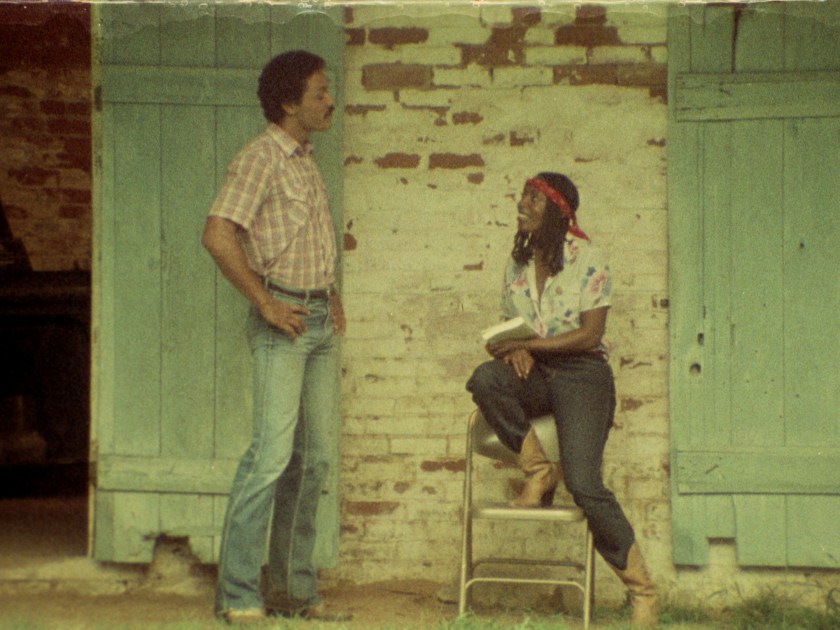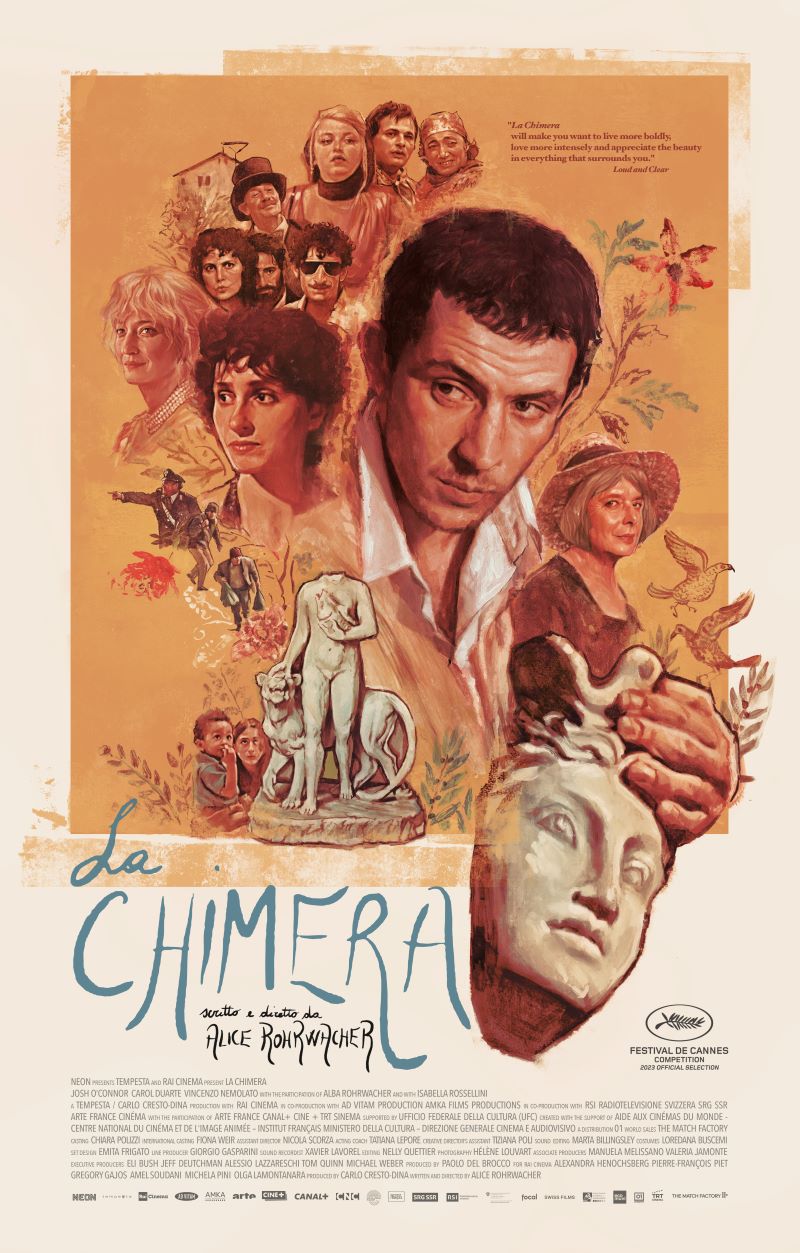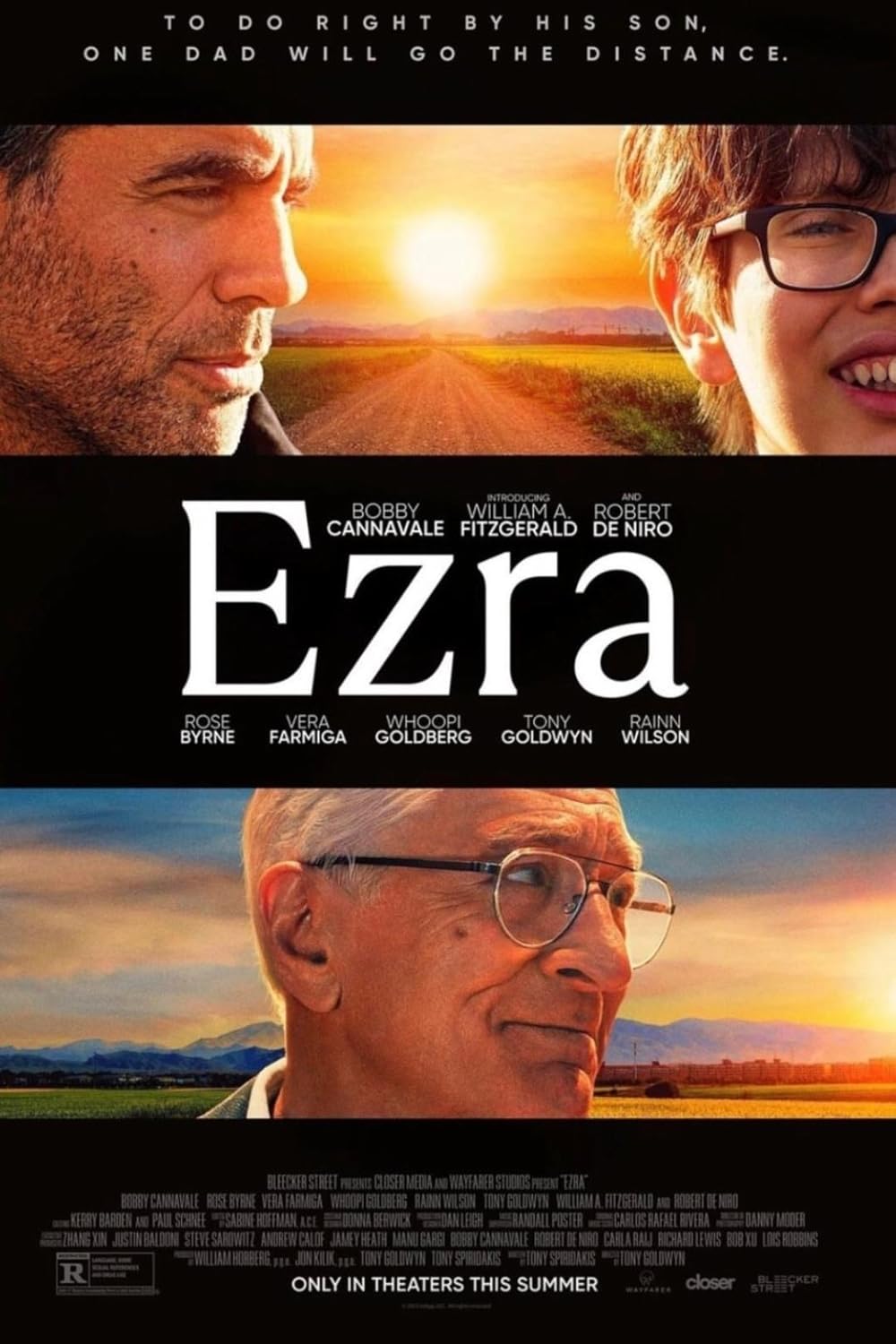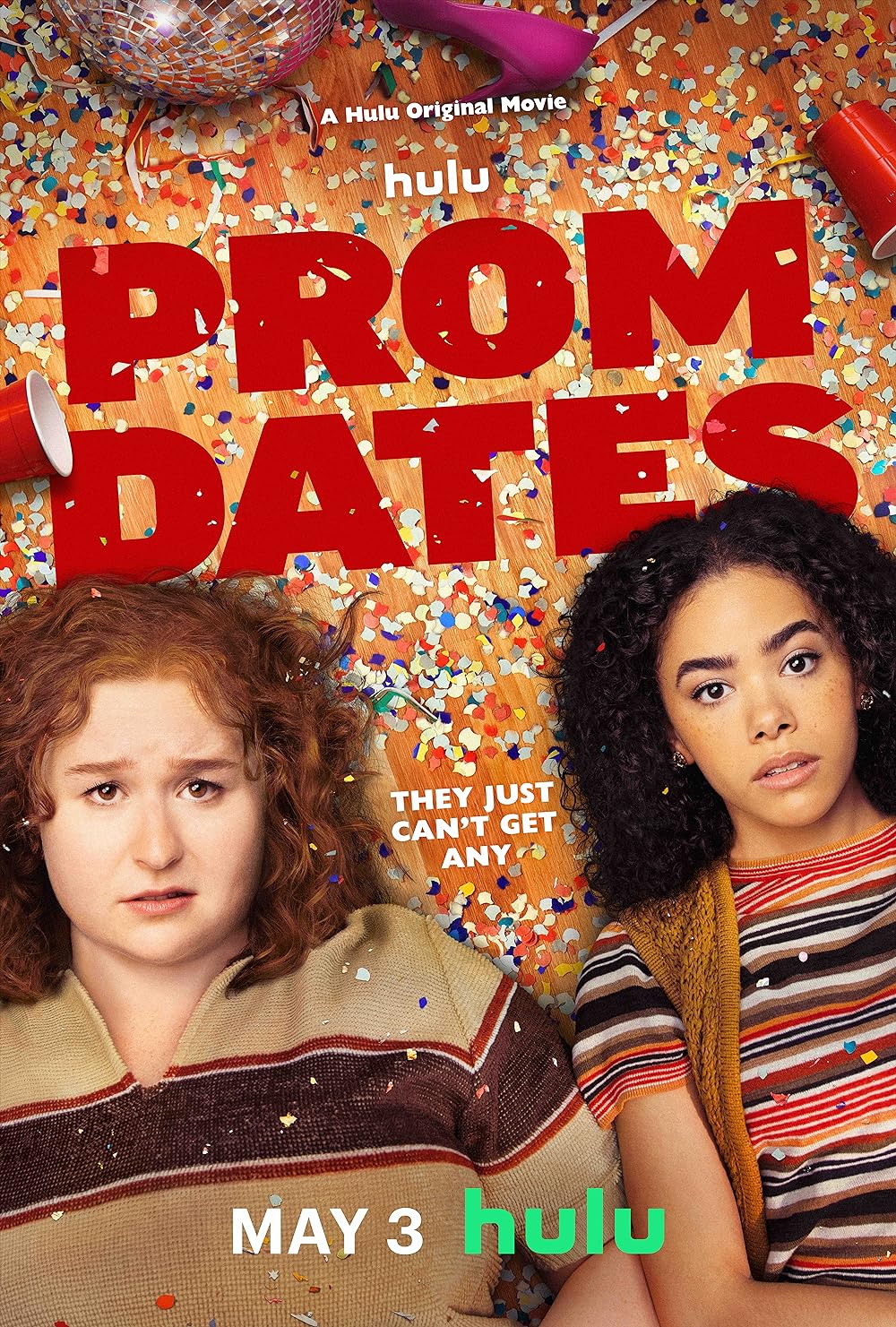On paper, Day 3 of Ebertfest might have struck some viewers as perhaps a bit dark and heavy from a programming perspective. After all, two of the films dealt with post-war romances that most assuredly do not live happily ever after, and a third was a long-unseen feature that essentially disappeared from view after the first-time writer/producer/director passed away a mere two months before it was set to have its New York premiere. However, to see them in front of the always-enthusiastic Ebertfest crowd turned each one of them into celebrations, not just of their own qualities but of the restorative qualities of cinema itself. Of course, it also helped that the long day of moviegoing was capped off by one of the most heedlessly goofy and utterly charming movies imaginable to send attendees out into the streets with smiles on their faces and any number of ’80s-era hits rattling in their heads.
The day started out with a presentation of “Sebastian,” a short film by Sam Fragoso, who began attending Ebertfest several years ago when he was just in high school and now works as an author, critic and podcast host. Before the screening, he recounted his first Ebertfest, and how his father would not let him leave the theater until he went up and introduced himself to Roger. Not surprisingly, Roger took to him and encouraged him to keep up with his writing—while advising him not to disclose his age to avoid people dismissing his work sight unseen—and he certainly would have been pleased to have seen his short as well. The film, in which a Mexican-American almond picker narrates a letter that he has written to his son, is only three minutes long but it nevertheless packs a significant emotional punch. More impressively, there is not a single wasted moment on display—every shot is framed in just the right way and held for just the right length. The whole demonstrates a sure hand for the medium that leaves you curious to see what Fragoso does next.
It is perhaps no coincidence that “Sebastian” prefaced the screening of “Cold War” since both films find their filmmakers grappling with the legacies of their own family sagas. In the case of “Cold War,” writer/director Pawel Pawlikowski (whose previous film, “Ida” (2013), screened at Ebertfest and won the Oscar for Best Foreign Language Film) was inspired by the tempestuous on-and-off relationship of his own parents to tell the story of the up-and-down romance between a conductor/musicologist (Tomasz Not) and the ambitious young singer (Joanna Kulig) that he discovers that is set against the background of the political and cultural shifts spreading throughout Europe in the post-war period.
I named “Cold War” as one of the ten best films of last year, and being able to see it again, with its already extraordinary visuals getting additional luster on the giant screen at the Virginia, I found myself liking it even more. This is a film that is quite short—not counting the end credits, it only runs about 77 minutes or so—but it is certainly epic in regards to scope. Covering more than 15 years and set amongst a number of of European countries, it has the feel of a much larger work without ever being bogged down by anything that could possibly take away from the central story of two lovers who have undeniable chemistry (as do the two actors, both of whom are incredible) but whose relationship is forever being thwarted both by the winds of fate and their own basic incompatibility. The film was nominated for three Oscars this year—Pawlikowski was cited for Best Director and it was also in the running for Best Foreign Language Film and Cinematography—and as critic Michael Phillips pointed out in his introduction, it could well have been a serious contender to win the latter two if it weren’t up against the juggernaut that was “Roma.” Phillips was joined by Carla Renata, a.k.a. The Curvy Critic, who recounted interviews that she did with Pawlikowski and Kulig in order to illuminate some of the film’s themes, and Nate Kohn, who mentioned that he himself spent some time behind the Iron Curtain during the ’60s as well.
As you probably know, this year’s Ebertfest kicked off with “Amazing Grace,” a film that had gone unseen for decades but was well-known enough so that most attendees presumably at least knew something about it and its complex backstory. In the case of this year’s other so-called “lost” film, “Cane River” (1982, pictured at top) it is very likely that, outside of those connected directly with the festival, most sitting in the theater hadn’t even heard of the film, let alone seen it.
Set in Louisiana, it tells the story of a pair of star-crossed lovers whose burgeoning relationship is threatened by issues of class and color. Peter (Richard Romain) is a former local football hero who has just rejected an offer to play professional football (okay, the offer was from the Jets, but still …) who has returned home with vague dreams of perhaps becoming a poet. One day, he meets Maria (Tommye Myrick), who is about to go off to college, and the two fall almost instantly in love. Unfortunately, this blossoming romance flies in the face of a long-standing barrier between Peter’s people, the lighter-skinned Metoyer creoles who used to own land and slaves back in the day, and Maria’s, the darker-skinned families who were used as slaves. Despite the disapproval of their families, their love continues to grow but the question arises of whether it can stand up in the face of historical precedent and the disapproval of both their families.
The film was the debut creation of Horace Jenkins, a former producer of such television shows as “Sesame Street” and “30 Minutes” (a children’s version of “60 Minutes”), who wrote, produced and directed “Cane River” independently. Nowadays, that might not sound that shocking but this was early enough in the evolution of what would eventually become known as the American independent film movement that it didn’t even have a name for it. Around that time, other maverick filmmakers like John Sayles and Victor Nunez were gaining notice for their similarly developed debuts, “Return of the Secaucus Seven” and “Gal Young’Un” (both 1979), and it is entirely possible that the same would have happened to Jenkins as well. Sadly, he died in 1982 shortly before his film’s premiere. After a couple of screenings, “Cane River” disappeared from view and languished for decades in the vaults of the DuArt film laboratories, until producer Sandra Schulberg stumbled upon it among the other 4,000 negatives that were left behind and became obsessed with the notion of restoring it, and was able to do with the support from the likes of Academy of Motion Pictures Arts & Sciences and the Roger and Chaz Ebert Foundation. After the screening, Schulberg appeared on stage to discuss the discovery and restoration of “Cane River,” joined by Myrick, and Jenkins’ children, Sacha and Dominique, who spoke movingly of the unexpected chance to get in touch with their father’s creative legacy.
The next screening, “A Year of the Quiet Sun” (1984), served double duty by highlighting a title that Roger had admitted into his Great Movies pantheon and by serving as the focus of a tribute to the life and work of Scott Wilson, the actor who starred in the film and who had been one of Ebertfest’s most frequent and beloved guests before his passing last October. (This year’s edition has been dedicated to Wilson.)
Like “Cold War,” this is a film that mixes together war and romance in ways that manage to come across as both sweeping and shockingly intimate. Set in 1946, Wilson plays Norman, an American soldier who has been sent to Poland as part of a commission looking for a mass grave of American soldiers executed by the Nazis. He has a lot of free time to wander around and one day, he comes across Emilia (Maja Komorowska), a war widow who is living in a bombed-out single room with her aging mother (Ewa Dalkowska) and earning a meager living baking cakes. Neither one speaks the other one’s language, of course, but some things are universal and the two fall instantly in love. Unfortunately for the two of them, the path to happiness has many obstacles—the mother is suffering from an infected leg, a man who appears to be a sleazy local official uses his vague position of power to inflict unnecessary cruelty on anyone that he can, Norman is haunted by memories of his own war experiences and Emilia, having spent years as a refugee before finally being able to return home, is uneasy at the prospect of leaving Poland again. Without going into too many details of what transpires, let it be said that writer/director Krzysztof Zanussi lets his story unfold in unexpected ways that run the gamut from heartfelt romance to powerful drama to even the occasional bits of humor. He hits every one of them dead on, aided in no small part to the powerhouse performances from the two leads.
After the screening, the festival paid tribute to the film and Wilson by having both Heavenly Wilson, Scott’s wife and a familiar face to regular attendees, and co-star Maja Komorowska, who flew in from Poland and was accompanied by her grandson, Jerzy Tyskiewicz, who served as her translator. Obviously, Q&A’s involving a translator can sometimes be tough, but between Tyskiewicz’s charm and Komorowska’s delightful personality—the kind that needs no translation—it proved to be a relatively smooth experience. (It didn’t hurt that people struggling with translations was a running joke in the film itself.) Between the two of them and Heavenly, who teared up during her introduction following a montage of clips from throughout Scott’s career, and then delighted the audiences with a number of anecdotes about making the film in Poland, it proved to be a lively, and touching tribute to Wilson, whose spirit will no doubt continue to bless Ebertfest for years to come.
That said, all the films up to this point were a bit on the heavy side and it therefore came as a sort of blessed relief to conclude the day with the burst of pure cinematic cotton candy that is “Romy and Michele’s High School Reunion,” the wonderful 1997 comedy about two cheerfully goofy misfits, Romy (Mira Sorvino) and Michele (Lisa Kudrow), who have been best pals since high school, where they were ostracized by their snottier classmates for daring to march to their own drummers. Now it is time for their ten-year reunion and when they finally decide to go, they decide to cast aside their seemingly humdrum lives and show up pretending to be high-powered business executives who struck it big by inventing Post-It Notes. The film, inspired by a play by Robin Schiff in which Romy and Michele were only supporting roles, is not exactly profound—the deepest it gets is in its observation that most everyone was miserable to one degree or another during high school—but that does not make it any less funny or entertaining. Sorvino and Kudrow are both pitch-perfect in the leads—they correctly play their characters so that they embrace the silliness and vapidity of the roles instead of simply making them into airhead idiots—and they get great support from a cast of familiar faces that includes Alan Cumming, Janeane Garofalo and Justin Theroux.
“Romy and Michele’s High School Reunion” was directed by David Mirkin, who made his directorial debut with this film (his only other feature would be the underrated 2001 comedy “Heartbreakers”) and who is better known for producing such TV shows as “The Simpsons” and the program that may be the single greatest work of art in the history of the medium, “Get a Life.” Like his film, Mirkin lightened the mood considerably with a funny and occasionally rambling Q&A in which he discussed the production of the film, his occasional clashes with Disney over everything from the tone to the musical choices (at first, he recalled, they wanted him to drop a song by No Doubt from the soundtrack, only to then ask for additional cuts by them once they broke wide—alas, by that time, they were too expensive). He admitted that unlike a lot of high school-oriented movies, in which the oddball characters always found themselves gravitating towards the center in terms of acceptability, he wanted to do one that would “celebrate the weirdos.” At the end of the discussion, Mirkin even accepted the request of an audience member and sang the immortal “Spider-Pig” song that he wrote for “The Simpsons Movie,” a fitting end to a long and ultimately rewarding day at Ebertfest.












